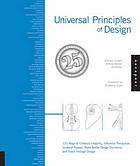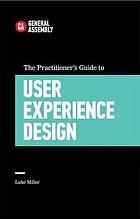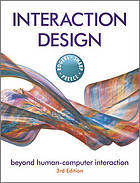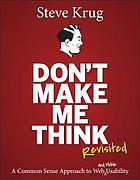Readings
Universal principles of design
The first textbook is a cross-disciplinary reference of design, pairing clear explanations of design concepts with visual examples of the concepts applied in practice.
Lidwell, W., Holden, K., Butler, J., & Elam, K. (2010).
 Universal principles of design:
125 ways to enhance usability, influence perception, increase appeal,
make better design decisions, and teach through design.
Universal principles of design:
125 ways to enhance usability, influence perception, increase appeal,
make better design decisions, and teach through design.
Beverly, Mass: Rockport Publishers.
We will use selected principles from this book as preparatory readings for each class session, but as the book includes 125 principles and we have 29 sessions, we won't necessarily cover each one in depth. I do think you need to have this book in your professional collection, though, and that is why it is a required text.
The practitioner's guide to user experience design

The second textbook, according to its blurb, "breaks down the essence of what it takes to meet a customer's needs and shows you how to apply these principles while working in tech. From finding your inspiration to creating prototypes, this book pulls from case studies, research, and personal experience to give you the tools and tactics you need to survive in the fast-paced world of UX design."
Miller, L. (2015).
The practitioner's guide to user experience design.
New York; Boston: Grand Central Publishing.
This book will provide a framework in which to think about applying the principles of design to the real world of executing a design for a particular user.
Other Readings
When additional readings are assigned, they will be made available electronically, through the class schedule and the specific session pages.

Sharp, H., Rogers, Y., & Preece, J. (2011).
Interaction design: Beyond human-computer interaction.
Chichester: John Wiley.
You may find this excellent textbook useful, though we will have no required readings from it. It is described as comprehensive and practical, showing both theory and its application.
Other readings may be available to you as Safari Books Online.

Krug, S. (2014).
Don't make me think, revisited: A common sense approach to Web usability.
Steve Krug's book, for example, is one that is available in Safari Books Online.
There are additional excellent resources available online

One of the better ones are the interaction design texts available through the Interaction Design Foundation.
